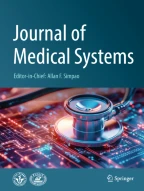Abstract
In the fast moving world, users cross over large amount of data for their daily life. Due to the misinterpretation of the context, user cannot retrieve the proper context or failure to retrieve the information. The main aim of this paper is to design and implement a personalized search engine which works based on the domain of the user with the specific constraints suggested by the user. In this paper, the proposed system, build a search engine with web content which get information from the document corpus for the domain through the cloud databases. Web search engine re-ranks the generic results based on a ranking of a context linked with the domain. In this system, collaborative search service helps to improve the relevancy of the search results and to reduce the overtime on bad links and hence caters to customized needs with collaborative feedback using fuzzy decision tree based on fuzzy rules.
Similar content being viewed by others
References
Collaborative Information Retrieval Environment., Integration of Information Retrieval with Group Support Systems by Nicholas C. Romano, Dmitri Roussinov,Jay F. Nunamaker, Jr,Hsinshun Chen, IEEE 1999.
Herrera, M. R., de Moura, E. S., Cristo, M., Silva, T. P., and da Silva, A. S., Exploring features for the automatic identification of user goals in web search. J. Inform. Process. Manag. 46:131–142, 2010.
Yu, J., Gong, J., and Liu, F., Generation of semantic interactive environment for personalized search. IEEE International Conference on Computer and Information Technology September. Computer Society Washington, DC, USA. IEEE. 443–448, 2011.
Dinh, D., and Tamine, L., Towards a context sensitive approach to searching information based on domain specific knowledge sources. J. Web Seman.: Sci. Services Agents World Wide Web 12(13):41–52, 2012.
Siva kumar, P., Premchand, D. P., and Govardhan, D. A., Query-based summarizer based on similarity of sentences and word frequency. Int. J. Data Mining Knowl. Manag. Process 1:1–12, 2011.
Kim, J. Y., and Collins-Thompson, K., Characterizing Web Content, User interests, and search behavior by Reading level and topic. ACM 2012 conference on web search and data mining Feb 8, 2012; ACM new York, NY, USA: ACM. 213–222, 2012.
Verma, R., and Pathak, K., Deriving personalized concept and fuzzy based user profile from search engine queries. Int. J. Sci. Eng. Res. 4:1–11, 2013.
Serrano-Guerrero, J., Romero, F. P., and Olivas, J. A., Hiperion: A fuzzy approach for recommending educational activities based on the acquisition of competences. J. Inform. Sci. 248:114–129, 2013.
Li, M., Liub, L., and Li, C.-B., An approach to expert recommendation based on fuzzy linguistic method and fuzzy text classification in knowledge management systems. J. Expert Syst. Applic. 38:8586–8596, 2011.
Pulkkinen, P., and Koivisto, H., Fuzzy classifier identification using decision tree and multiobjective evolutionary algorithms. J. Approx. Reason. 48:526–543, 2008.
Kazemia, A., and Mehrzadeganb, E., A new algorithm for optimization of fuzzy decision tree in data mining. J. Optim. Indust. Eng. 7:29–35, 2011.
Adidela, D. R., Jaya, S. G., and Lavanya, D. G., Construction of fuzzy decision tree using expectation maximization algorithm. J. Comput. Sci. Manag. Res. 1:416–424, 2012.
Ramesh, L. S., Ganapathy, S., Bhuvaneshwari, R., Kulothungan, K., Pandiyaraju, V., and Kannan, A., Prediction of user interests for providing relevant information using relevance feedback and re-ranking. Int. J. Intell. Inform. Technol. (IJIIT) 11(4):55–71, 2015.
Sulthana, R., and Ramasamy, S., Context based classification of Reviews using association rule mining, fuzzy logics and ontology. Bull. Electric. Eng. Inform. 6, no. 3, 2017
Dong, M., and Kothari, R., Look-ahead based fuzzy decision tree induction. IEEE Trans. Fuzzy Syst. 9:461–468, 2001.
Mitra, S., Konwar, K. M., and Pal, S. K., Fuzzy decision tree, linguistic rules and fuzzy knowledge-based network: Generation and evaluation. IEEE Trans. Syst. Man Cybernet.—Part C: Applic. Rev. 32:328–339, 2002.
Vitaly, L., and Penka, M., Fuzzy decision tree for parallel processing support. J. Inform. Contrl Manag. Syst 3:45–52, 2005.
Senthilkumar, N.C. and Pradeep Reddy, Ch., (Classification) grouping the users based on their web search using fuzzy logic. International Journal of Pure and Applied Mathematics, vol. 116, no. 21, 2017.
Selvakumar, K., Sai Ramesh, L., and Kannan, A., Enhanced K-means clustering algorithm for evolving user groups. Indian Journal of Science and Technology 8, no. 24, 2015.
Author information
Authors and Affiliations
Corresponding author
Ethics declarations
Conflict of Interest
This paper has not communicated anywhere till this moment, now only it is communicated to your esteemed journal for the publication with the knowledge of all co-authors.
Ethical Approval
This article does not contain any studies with human participants or animals performed by any of the authors.
Additional information
Publisher’s Note
Springer Nature remains neutral with regard to jurisdictional claims in published maps and institutional affiliations.
This article is part of the Topical Collection on Transactional Processing Systems
Rights and permissions
About this article
Cite this article
Senthilkumar N C, Pradeep Reddy Ch Collaborative Search Engine for Enhancing Personalized User Search Based on Domain Knowledge. J Med Syst 43, 243 (2019). https://doi.org/10.1007/s10916-019-1350-1
Received:
Accepted:
Published:
DOI: https://doi.org/10.1007/s10916-019-1350-1
